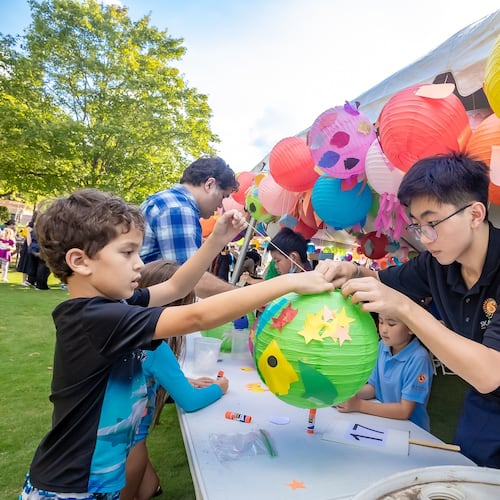Many people apparently enjoy living alone. After all, you needn’t cater to someone else’s tastes in wine or music — and you can have five cats or three gerbils, and it’s nobody’s concern but yours.
On the flip side, you must face the peril of slicing your finger open while cutting tomatoes and then engaging in a frantic, one-handed search for a bandage. If you awaken at 3 a.m. with chest pains, you alone must decide if you’re on the brink of death — or if it’s just the guacamole.
I am admittedly new to solitary living, but so far I rank it right up there with getting a tetanus shot. Still, last week when I saw a newly released film, “The Martian,” I realized I haven’t begun to plumb the true depths of solitude.
After a dangerous storm on Mars nearly destroys their spaceship, the crew heads home to Earth, leaving behind one member, Mark Watney (Matt Damon), who is presumed dead.
In truth, though, Watney survived — and the loneliness he endures as the sole inhabitant of Mars makes solitary life in Atlanta seem like child’s play. Forget about bandaging a bleeding finger, Watney must remove a spike that’s piercing his abdomen and then staple the wound shut.
After rising to that excruciating occasion, he estimates that supplies will run out before the arrival of the next mission — and realizes dying of starvation is a real possibility.
Watney’s technological know-how helps him overcome incredible obstacles, but there is something intangible — the virtue of hope — underpinning his scientific maneuvers. You see, right from the start, this young man possesses the unshakeable certainty that he will survive his ordeal.
As he puts it, “At some point everything is going to go south in your life, and you’re going to say … ‘This is how I end.’ You can either accept that — or you can get to work.”
When it comes to technology, I am, sadly, about as far removed from Watney as a mouse is from an elephant. For example, when I detected odd chirping sounds in the house, it took me hours to figure out it was a smoke-alarm battery that needed changing.
Many other things strike me as foreign on my new planet of solitude, including the thermostat, which defies my attempts to program it, and the microwave, which refuses to share the secret of its defrosting mechanism.
At first I thought, “You’ll never survive this,” but now I’m repeating a line from the Psalms: “I wait for the Lord, my whole being waits, and in his word I put my hope.”
It’s been more than two months since I was left stranded in my world — and I’ve managed to decipher the password to my husband’s computer and drive myself to the emergency room at midnight.
So, yes, forced solitude for me is unspeakably painful, but rather than admitting defeat, I’m trying to follow Watney’s example — and get to work.
About the Author
Keep Reading
The Latest
Featured

